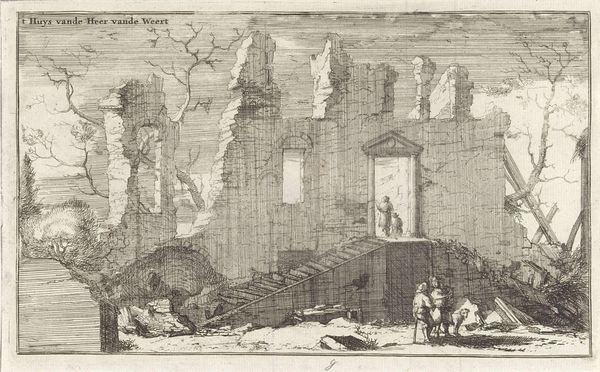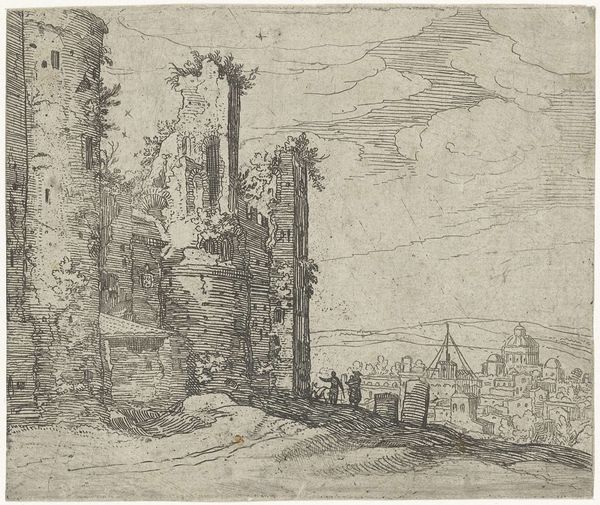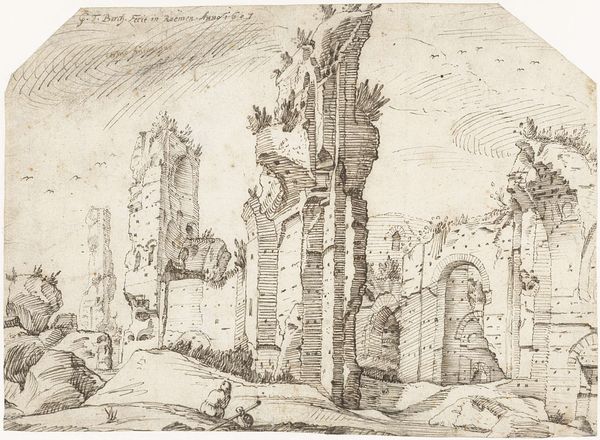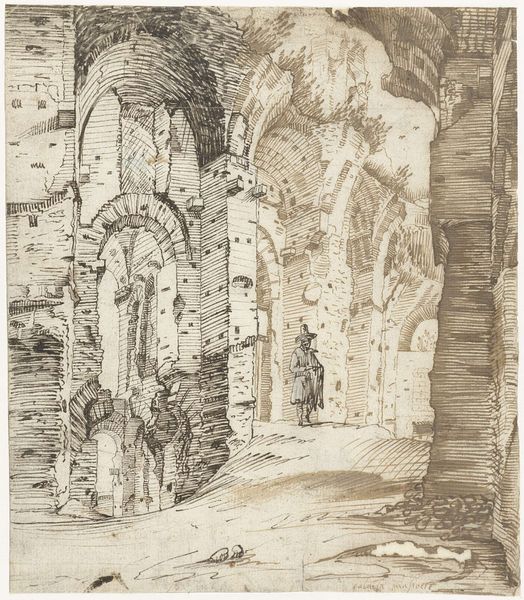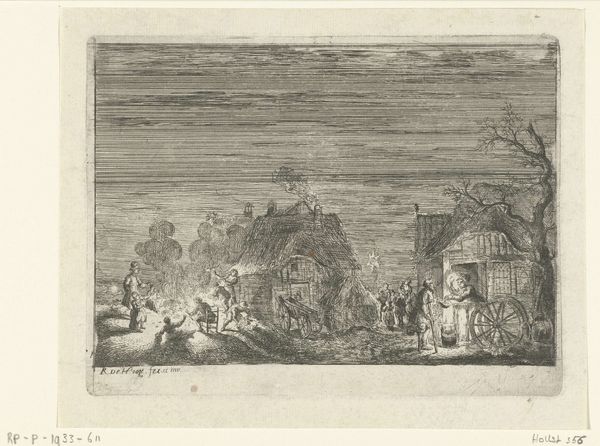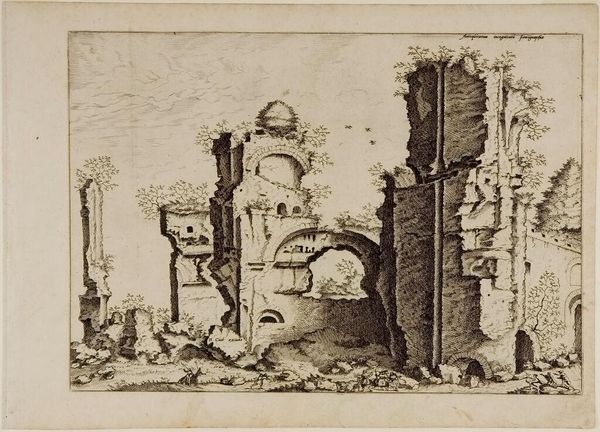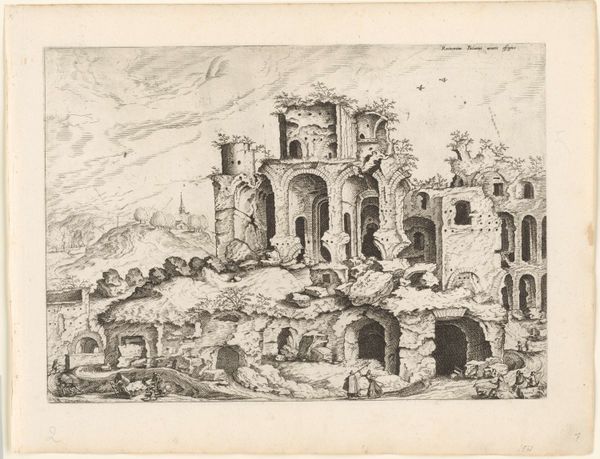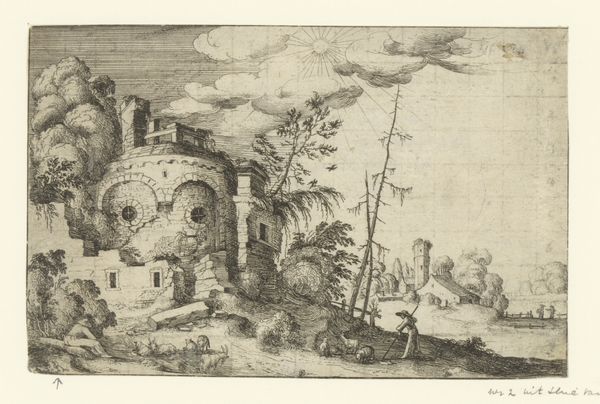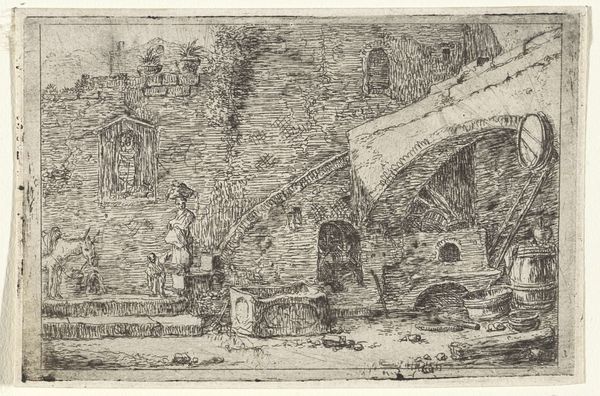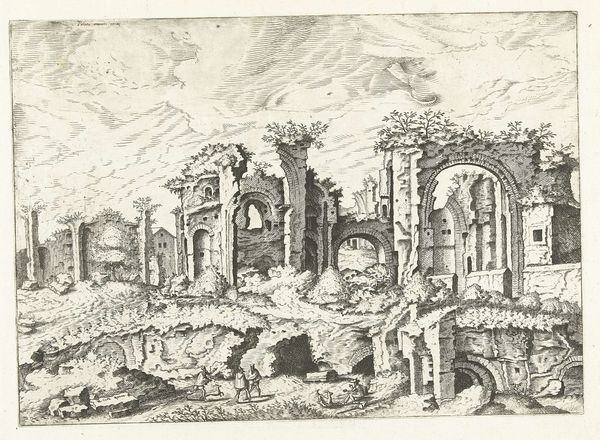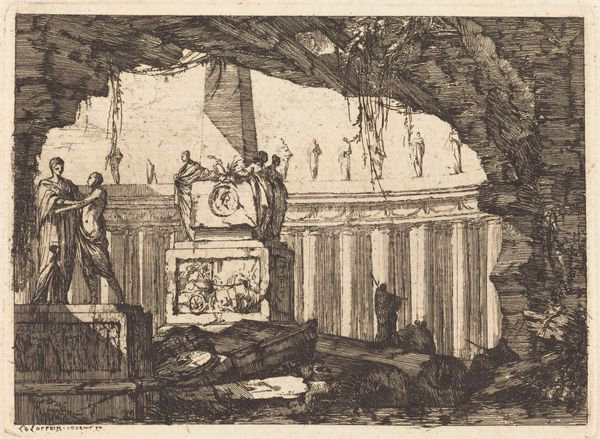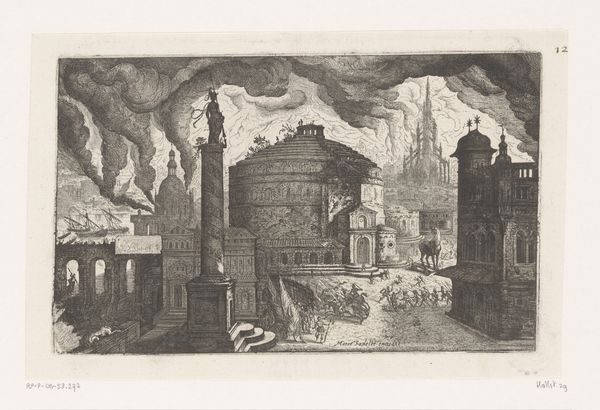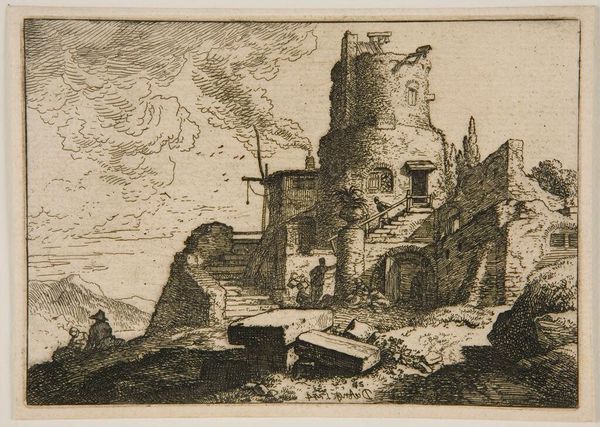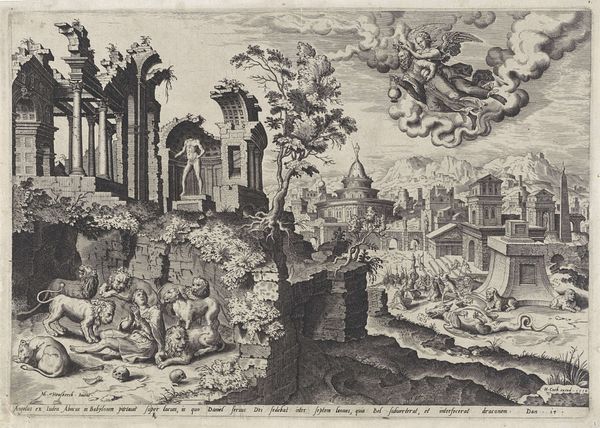
Huis van de Heer vande Weert, verwoest door de Fransen in 1672 1672 - 1676
0:00
0:00
isaacsorious
Rijksmuseum
print, etching
#
narrative-art
#
baroque
# print
#
etching
#
landscape
#
history-painting
Dimensions: height 155 mm, width 256 mm
Copyright: Rijks Museum: Open Domain
Editor: Here we have Isaac Sorious's etching from between 1672 and 1676, depicting the "Huis van de Heer vande Weert, verwoest door de Fransen in 1672," or the House of Lord vande Weert, destroyed by the French in 1672. It feels intensely mournful, with the stark ruins against the landscape. How do you interpret the imagery here, especially in the context of its time? Curator: This image is a powerful indictment of war and its impact on domestic life. Sorious, through the precise medium of etching, captured not just the physical destruction but the disruption of social order and the vulnerability of those who suffer most in conflict. Think about who the 'Heer vande Weert' might have been, and how this devastation would affect their position in society, their very identity. Editor: So, you see it as a commentary on power structures? Curator: Absolutely. The destruction of a Lord's house isn’t just about bricks and mortar; it's about dismantling hierarchies and causing profound social and personal trauma. Notice the small figures in the doorway and foreground; they’re dwarfed by the ruin, symbolizing the individual’s powerlessness against the forces of war and the instability of societal foundations. The ruins could even represent the fragmented identity of the Dutch during this tumultuous period. How does that resonate with you? Editor: It makes me think about displacement and loss of identity, especially for women and marginalized groups during times of war. It adds a new layer of complexity to the image. Curator: Precisely! This work, through its seemingly simple depiction of a ruined house, invites us to confront the multifaceted consequences of conflict, prompting reflection on issues of power, identity, and social justice that remain relevant today. Editor: I see it now—it is much more than a historical record; it's a stark reminder of the human cost of conflict. Thank you.
Comments
No comments
Be the first to comment and join the conversation on the ultimate creative platform.
